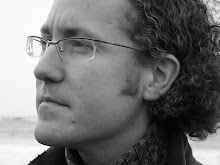I am very pleased to be able to announce that Dr Atsushi Senju and myself have a fully funded PhD studentship starting October 2013. Details below.
The project will be utilising similar home eyetracking technology to that recently demonstrated by Tobii at CES. See the video above for a sneak peek.
>>>>
We are pleased to offer a full 1+3 year MRC Industry CASE PhD studentship entitled "Going Global: Application of Portable Eye-tracking Technology to Study the Effect of Cultural Norms on the Development of Social Cognition". The studentship will be based at the Centre for Brain and Cognitive Development, Department of Psychological Sciences, Birkbeck, University of London, and be conducted in conjunction with Acuity ETS Limited & the Institute of Psychiatry. The studentship will cover course fees at the usual level for UK and EU studentships and a stipend in accord with research council rates.
Much of what we currently know about the developmental disorders comes from Western cultures, and few multicultural studies have been conducted. A major barrier is that the equipment for neurocognitive assessment is often expensive, heavy and requires dedicated lab space, which prevents the assessments being practicable to run in many countries, areas and communities. To overcome this challenge, we will develop a software suite with a portable and affordable eye-tracker, and use it to conduct a series of cross-cultural eye-tracking studies on social cognition in typically developing children and children with autism spectrum disorders (ASD). The successful PhD candidate will take a leading role in this project, including (1) identifying a suitable eye-tracker, developing a software suite, and testing it in the UK, (2) taking this eye-tracker suite to Japan and running the same experiment with Japanese children, and (3) testing children with ASD in both the UK and Japan.
Graduates in experimental psychology or related subjects with a good first degree are encouraged to apply. Experience in some of the relevant research areas and/or methodology (e.g. developmental psychology, autism research, eye-tracking methodology, software development) will be an advantage. Programming experience (e.g. Matlab, Java, C++) or willingness to learn is an advantage. We also expect the candidates to have a high motivation and enthusiasm to the project, good communication and person skills.
The student will receive four year training (1-year MSc and 3-year PhD) in theoretical, methodological, practical and commercial aspects of eye-tracking system. Both the academic supervisors (Dr Atsushi Senju and Dr Tim Smith) have strong track record in eye-tracking research, which will complement the industrial supervisor (Mr Scott Hodgins) from dedicated developers and distributors of eye-tracking system and from the clinical perspective (Prof. Tony Charman). Academic supervisors will also provide training of theoretical background in developmental cognitive neuroscience, autism research and cross-cultural study, development of original research design, programming of stimulus presentation and data acquisition, data recording from infants, children and clinical population, data analyses, and writing-up scientific papers and dissemination to non-academic user communities. The industry supervisor will train the student on the theory & use of eye-tracking in the first instance, and supervise the development of cognitive assessment software suite and the integration of the software suite to the portable eye-tracker.
The Centre for Brain & Cognitive Development (CBCD) at Birkbeck, University of London, has an outstanding track record in training phd students. Our excellence in training has just been rewarded with the designation “Marie Curie Centre of Excellence for doctoral training” which places us in the top 5% of life science training centres in the EU. Further, our national training record is reflected in the recent award of the Queen’s Anniversary Prize for Higher Education 2005 for “Neuropsychological work with the very young”. Acuity ETS is the leading independent eyetracking systems vendor in the world. Acuity is the biggest customer of two of the leading eyetracking manufacturers. Acuity actively strives to encourage collaboration between clients, and to share best practice across the client base.
Further details about the project may be obtained from:
Dr Tim Smith
Further information about PhDs at Birkbeck, University of London is available from:
Application forms and details about how to apply are available from:
Francesca Carter (f.gumbs@bbk.ac.uk)
Candidates must supply a CV, full transcripts of their qualifications and a statement of no more than 500 words indicating what skills and academic and professional experience you can bring to this project and why you consider you would be the best person to undertake this research. If possible, this should include evidence of your knowledge of the relevant literature in the field.
The deadline of application is 1 March 2013. Shortlisted candidates will be interviewed in late March.





